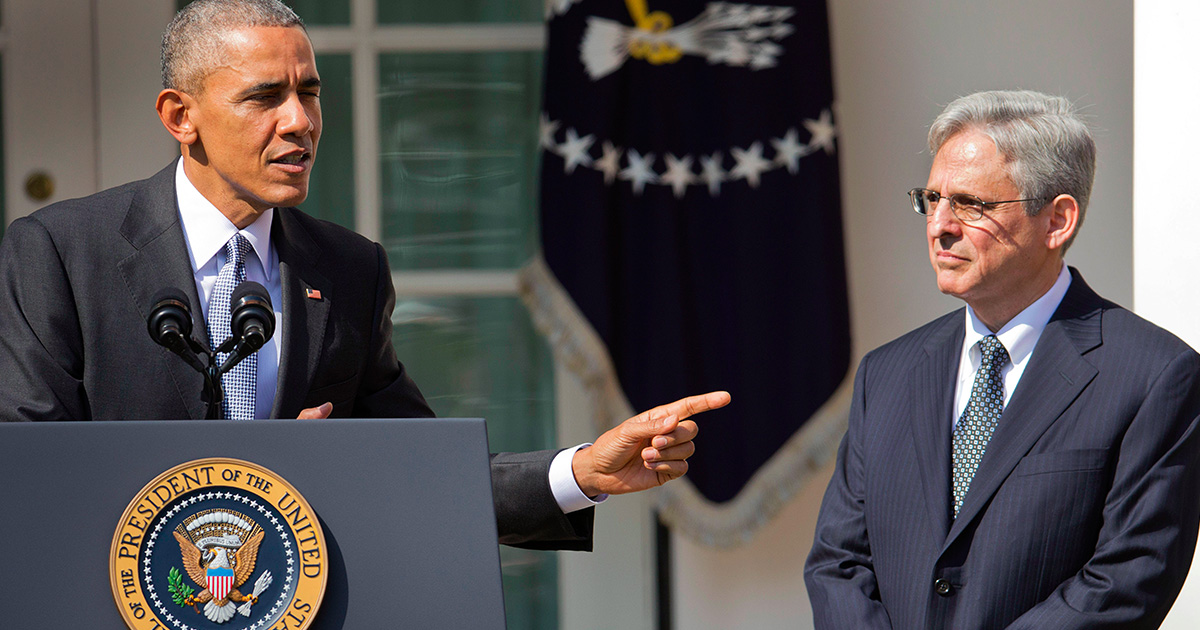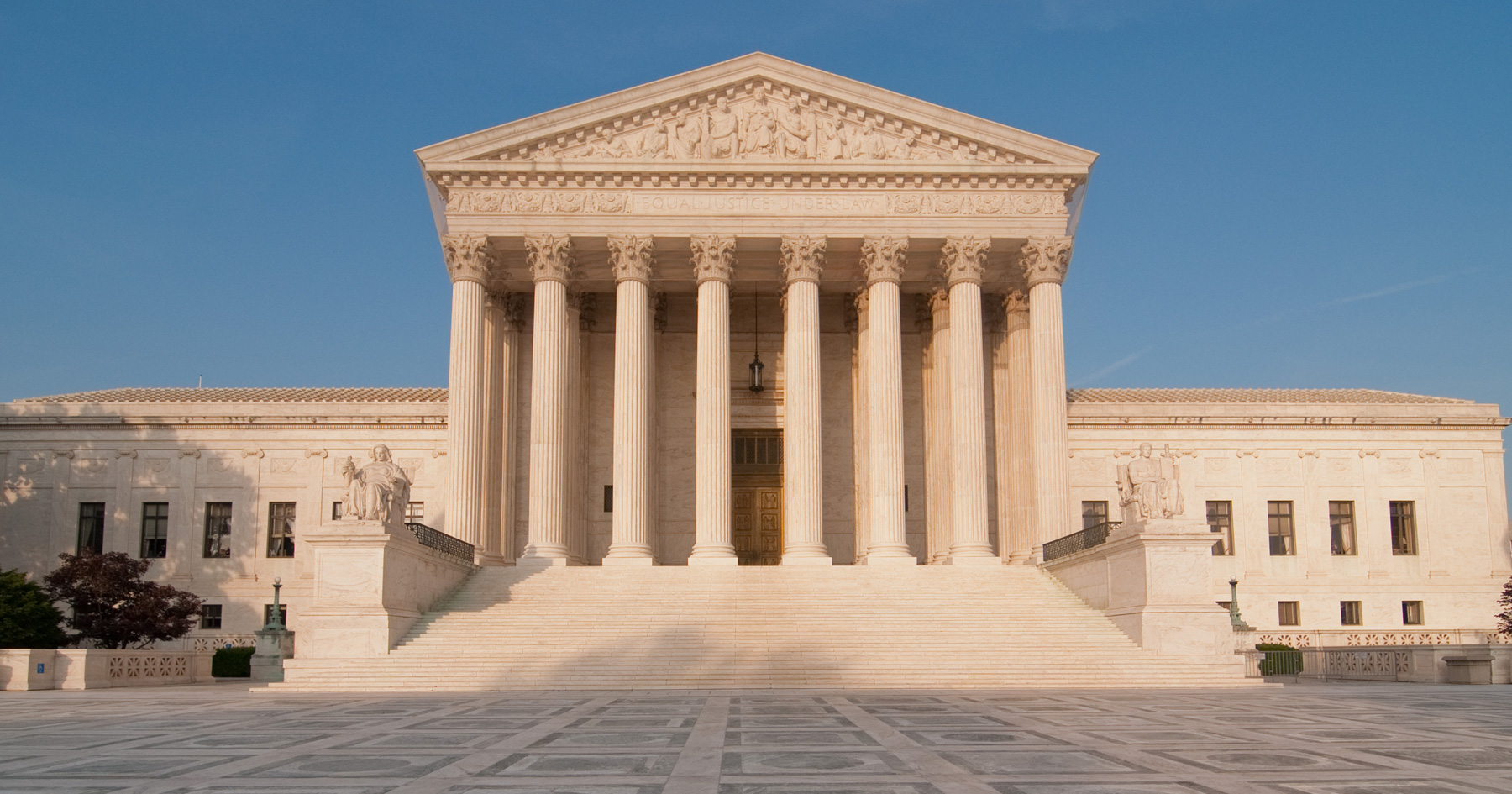What the SCOTUS Nomination Delay Means for America

By:
It's been more than 130 days since President Barack Obama nominated Merrick Garland for the U.S. Supreme Court — and the federal judge is still being denied a Senate confirmation hearing.
 AP/Pablo Martinez Monsivais - apimages.com
AP/Pablo Martinez Monsivais - apimages.com
Why? Because Garland, if confirmed, would replace one of the most consistent conservative voices on the Supreme Court bench: Justice Antonin Scalia, who died in February. Garland has earned a reputation as a moderate, but he still leans left, and so his prospective nomination has put Senate Republicans in a bind. They're refusing to hold a hearing until the next president is elected.
The immediate and future implications of this Supreme Court delay are significant, said Geoffery Stone, an American law professor and First Amendment scholar at the University of Chicago Law School.
Stone talked to ATTN: about the obstruction of the nomination process and what Americans can expect from the Supreme Court moving forward.
 Flickr/Mark Fischer - flic.kr
Flickr/Mark Fischer - flic.kr
ATTN: Can you explain the logic behind the current delay of the Supreme Court nomination process?
Geoffery Stone: Right now, with Justice Scalia off the court, the court is divided in a way so that the next nominee, and the next justice confirmed, will have a very substantial impact on the direction of the court across a range of issues, and the stakes are therefore very high. For example, when Justice Elena Kagan or Justice Sonia Sotomayor were nominated, they were basically seen as liberals replacing liberals — and, therefore, the votes on the court on important issues weren't likely to change. But with a Merrick Garland or even a more liberal nominee by President [Hillary] Clinton replacing Justice Scalia, and given the current division in the court, that would lead to a significant shift of direction on issues that are of great consequence to many people.
That's what raises the stakes. That's what makes it so important. It has nothing to do with the fact that it's in the last year of the president's term. Republicans would be equally upset and anxious regardless of when this particular type of situation arose. What they've done is basically use the excuse, and it's only an excuse, that this has arisen in the last year of President Obama's term to try to justify what is basically a historically unprecedented and constitutionally unconscionable approach, which is to deny a confirmation to a patently and unequivocally qualified nominee simply because they don't like the impact of that confirmation on the court. And that's an extraordinary event.
ATTN: What are some of the immediate implications of the 4-4 split in the Supreme Court?
Geoffery Stone: The fundamental issue is not the 4-4 split in the short term. There have been obviously some important issues — most notably the immigration question, where the court divided 4-4 on the president's executive order on immigration. But the greater issue is that this effectively [being] played out over time makes it impossible for the court to decide on a whole range of cases that will be coming before it.
If you look back over the current term, the most dramatic example of the effect of the 4-4 split was on the president's executive order on immigration. And had, for example, Merrick Garland been on the court, it's reasonable to infer that he would more likely than not [have voted] with the four more liberal justices to uphold the executive order instead of the court dividing 4-4, which has the effect [of] upholding a lower court decision that held that the executive order was not permissible. And going forward, of course, the court invariably over time hears very important questions about the Second Amendment, about campaign finance, about voting rights, about affirmative action, about abortion, about gay rights — and many of those will be divided 4-4 given the current state of the court.
ATTN: Is there anything in the constitution that explicitly calls for the Senate to hold a hearing in a certain time frame?
Geoffery Stone: There's nothing explicitly in the constitution that addresses that particular question. Basically, the constitution provides that the president shall nominate, and with the advise and consent of the Senate, appoint Supreme Court justices. And that was understood by the framers — if one's an originalist, for example — in a very specific way. Initially the framers thought to give the power to appoint judges to the president. And because the framers were uneasy about executive authority generally, they decided that was not ideal.
Then they thought about giving the Senate the power to appoint judges, and they realized that a multimember body of that sort is not in a very good position to select individuals for nominations. So then they decided that basically they would give the power to nominate and appoint to the president, but the Senate would have a role. And what they envisioned the Senate's role being is a check on abusive actions by the president. So if the president appointed someone who is unqualified, who is unethical, or whose views were seen as outside of the respectable mainstream of legal thought, then the Senate would serve as a check to prevent the president from appointing such justices. And that's largely how the Senate has operated over the course of 225 years.
ATTN: What kind of precedent does this current delay set?
Geoffery Stone: Well, it certainly invites, in the most extreme sense, counterproductive obstructionism in the face of nominations that members of the Senate do not approve of. Whether they have the capacity to block nominations depends upon which party has control of the Senate. Right now, the rules provide that presidential nominations of Supreme Court justices can be filibustered by 41 members of the Senate, which means they can be defeated even though they don't represent a majority of the Senate. But it wouldn't surprise me in light of what's happened here, for example, that the Senate would get rid of the filibuster rule and prohibit minorities from filibustering.
For example, let's suppose that Donald Trump is elected president and then he seeks to appoint someone to replace Justice Scalia — obviously it would not be Merrick Garland; it would be someone much more like Justice Scalia. If the Senate is in the hands of the Democrats at that moment, they can simply refuse to confirm. And now they would be in a much stronger position to do so given what the Republicans have done. If the Republicans control the Senate, in that situation, and another Justice Scalia was nominated, then the Senate Democrats would be much more likely to filibuster than they might otherwise have because of the situation that has developed. But taking it even a step further, if the Republicans do control the Senate, and the Democrats do filibuster, the Republicans then might get rid of the filibuster in the Senate. What this has done, in effect, is to throw into chaos all of the settled expectations and practices that the Senate has evolved over the years to produce a generally civilized and sensible approach.
ATTN: Is Merrick Garland a qualified nominee for the Supreme Court?
Geoffery Stone: Garland is eminently qualified, and there's no one who has, as far as I know, raised any question about Garland's qualifications. I mean, he's an extraordinarily experienced, talented, highly respected federal judge. Very ethical, very moderate. There's no one at all that has raised any questions whether Garland is qualified to be on the Supreme Court. Even his strongest opponents have not said that. They've basically said they don't want to confirm him, but not because he's not qualified.
